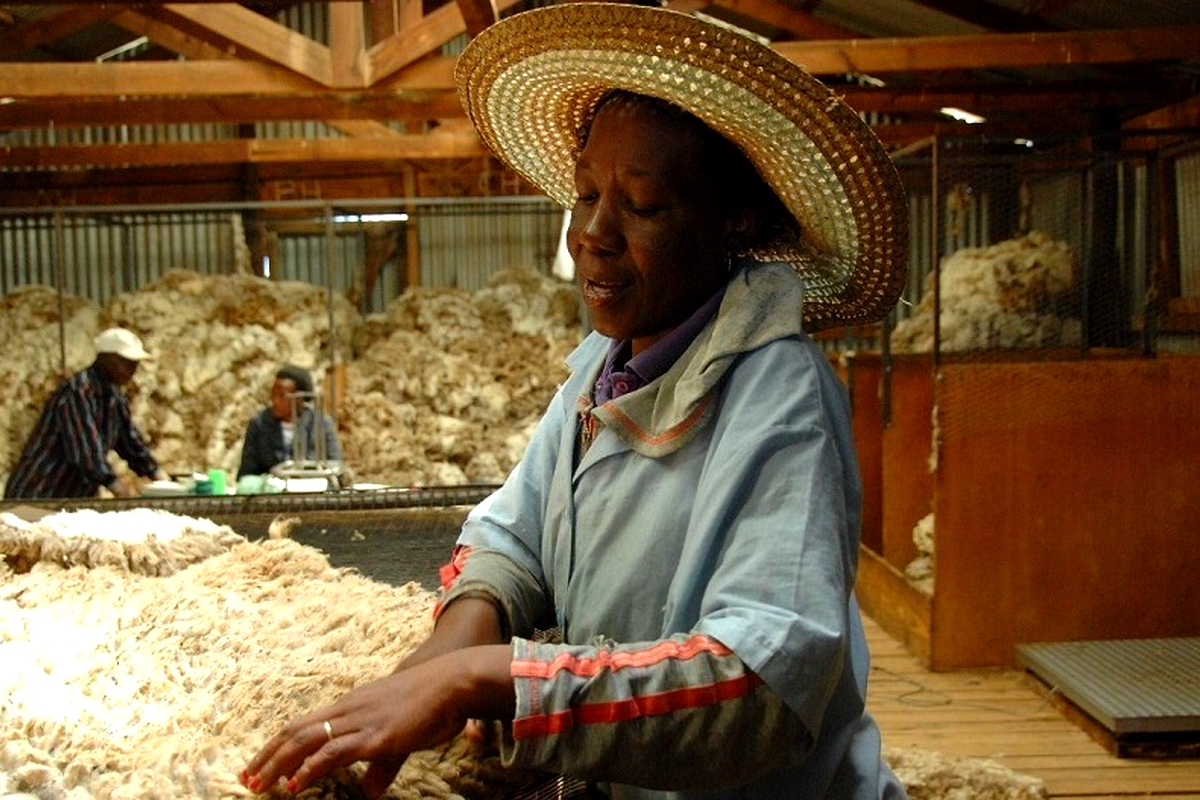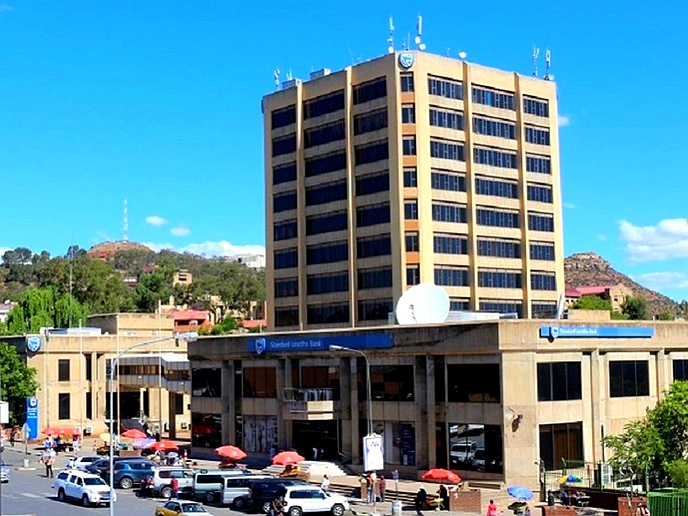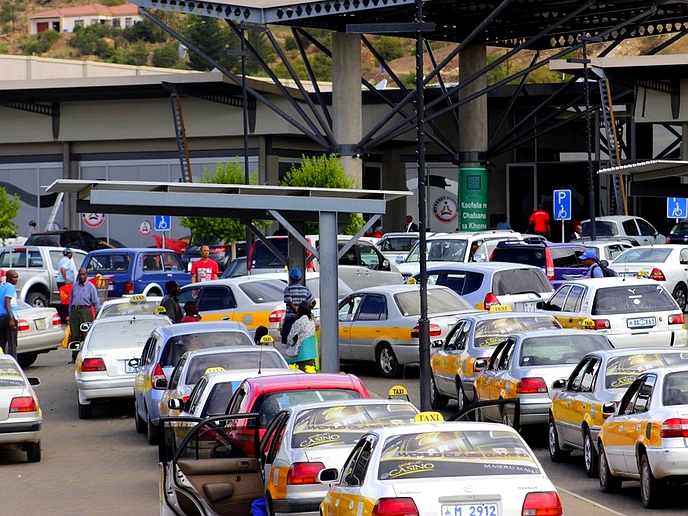LEAST Developed Countries (LCDs) like Lesotho have little to no gain from the African Continental Free Trade Agreement (AfCFTA) due to their limited capacities such as their internal issues of governance, lack of technological and infrastructural capacities along with their politics.
business
Nov. 15, 2022
NEO SENOKO
5 min read
Lesotho has little to no gain from free trade deal

Story highlights
This, is according to an analytic report released by AfronomicsLaw, an international organisation that focuses on international economic law and public international law as they relate to Africa and the Global South.
The agreement benefits to Lesotho include being a large and dynamic market for exports and the country’s importers and manufacturers will be able to source inputs competitively from other African countries.
The report, which has been prepared by the Lead Regional Representative of the AfronomicsLaw Academic Forum- Southern Africa, Advocate Mpeo Matsipa, argues that the implementation of the agreement, despite provisions made for the LDCs that include the Special and Differential Treatment (SDT) and being afforded a longer implementation timeframe, was premature.
“Despite having been given a longer implementation period, LDCs should be afforded a chance to temporarily halt undertaking any obligations and enjoying any benefits so that they can first deal with their internal issues which will be their downfall if not addressed and dealt with before engaging in major steps like the AfCFTA,” Matsipa said.
The issue concerning the different levels of development between developed and developing countries and the uneven benefits of free trade has been a major point of contention for a while now.
The assumption that all states were economically equal and should undertake the same level of trade commitments and obligations was challenged by developing countries in the General Agreement on Tariffs and Trade (GATT) when they became decolonised.
Individual independent African states are not economically large enough to construct a modern economy.
Some progress has been made through the years but it is still not substantial as there are some states with small populations, small domestic markets, and low volumes of trade rendering them too small even for the minimum efficient scale of a single producer.
“Their ability to nurture large-scale industries and attract external investments was restricted, and this led to the continent’s dependence on international markets and suppliers. Consequently, Africa pursued economic integration that focused on uniting resources, markets, and capital to expand the continent’s economic opportunities by affording them greater scope for economies of scale,” Matsipa further noted.
She said previous trade liberalisation efforts have failed to significantly impact intra-African trade, with the share of intra-African trade remaining low due to high import tariffs and other non-tariff barriers.
AfCFTA consolidates the Tripartite Free Trade Area and other Free Trade Areas into a single trade area and creates a single market for Africa’s goods and services, with free movement of people and investments and expansion of Intra-African trade through better harmonisation and coordination of trade liberalization and implementation of trade facilitation instruments across Africa.
In January 2022, Africa officially started trading under the AfCFTA and on August 22 of the same year, 38 countries including Lesotho have since deposited their instruments of ratification.
What this ratification means is that those countries consent to liberalise 90 percent of the tariff lines, which means that they will reduce and ultimately eliminate tariffs on 90 percent of products traded under the agreement.
The United Nations Conference on Trade and Development (UNCTAD) estimates that the implementation of the agreement and its accompanying measures would result in a GDP increase of one to three percent in most countries.
The complete elimination of tariffs and implementation of trade facilitation measures under the AfCFTA is geared towards promoting regional markets as attractive export destinations, thereby enhancing the competitiveness of regional products.
All the projections made are working on the assumption that Africa’s LDCs' main economic troubles are tariff barriers.
However, the internal factors within African economies are a major cause of Africa’s underperformance in international trade.
These include low productivity levels in agricultural and manufacturing products, lack of critical infrastructure and trade logistics, absence of legal frameworks, and non-existent, or weak, often highly corrupt, inefficient, and ineffective institutions to support production and experts.
Enjoy our daily newsletter from today
Access exclusive newsletters, along with previews of new media releases.
Generally, poor governance within economies is a critical cause of their underperformance.
Political instability has also been cited, however, many of the poorest-performing African economies have been managed by long-serving governments.
With the implementation of the AfCFTA, LDCs face adjustment challenges as they start to implement their liberalisation commitments.
“It is my view that exposing developing and LDCs to the agreement’s full potential will overwhelm these countries. The LDCs are countries with poorly diversified exports, countries, which remain highly dependent on primary commodities, and external or import secondary and tertiary commodities. Intra-African trade favours a few big regional players and one can only anticipate that the AfCFTA’s gains and losses will accrue unevenly,” Matsipa also said.
Even amongst themselves, developing and LDCs with large productive capacities in manufacturing or stronger supply capacities in non-manufactured products may reap more rewards than weaker, landlocked, and smaller economies.
One of the main driving forces behind the agreement is its promise to increase intra-Africa trade and secure socioeconomic benefits for the continent.
Before the COVID-19 pandemic, the LDC’s share of world service exports stood at just 0.8 percent compared to 30 percent for the wider group of developing countries.
In August this year, the African Development Bank Group and the secretariat of the African Continental Free Trade Area (AfCFTA) signed a protocol of agreement for an $11.24 million (M190 716 436.80) support package to enhance the secretariat’s effective implementation.
The AfCFTA secretariat, currently in phase II of its implementation phase, will benefit from this support package, which aims to boost sustainable intra-Africa trade and augment the number of participating African member states, including Lesotho.
The grant, approved in July by the board of directors of the African Development Fund, will focus on three areas that include institutional strengthening of the AfCFTA secretariat, private sector support to implement the AfCFTA, and support of climate-resilient regional as well as continental value chains to boost intra-Africa trade.
Tailored for you






